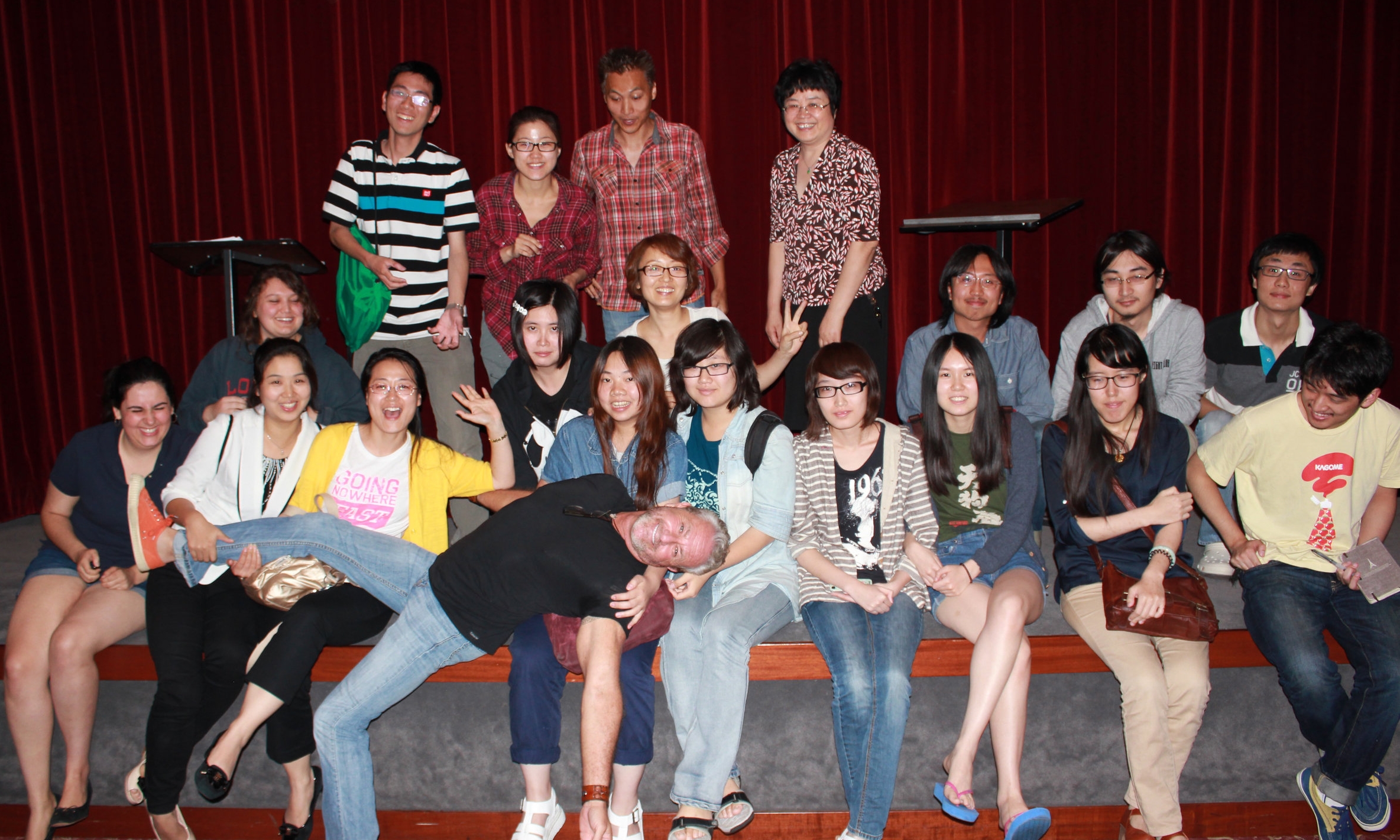According to the recent "Spotlight On China" study by Ernst and Young, China is expected to be the world's largest movie market by 2020 (Who'd have thunk?).
But what about Chinese television?
According to my talk with some Chinese delegates yesterday, TV is for children and housewives (they said frankly and honestly). In China, the most popular TV programs are reality shows with their versions of "American Idol" and "The Bachelor." As for the men, it turns out that they don't watch regular Chinese television, but instead watch American TV shows like "Game Of Thrones" on the internet.
According to these students.
This past week, voice actor and director, Charlie Adler, and I had the pleasure of speaking to a number of animation students and professors from The Beijing Film Academy at Loyola Marymount University. With the help of our two student interpreters, Ming and Edwin from LMU, we talked to them about the creative processes we go through in order to produce animation here in America.
Lucky for me, Charlie was the first to go. I say, lucky for me because I was able to adjust my talk by watching how he interacted with the students. It was a lot like pulling teeth at first because they didn't want to talk or engage with Charlie (they later said it was because they were scared of him!), but they soon warmed up to his speaking style. For those of you who know or have seen Charlie perform, he is a whirlwind of energy: fast, loud, and brazen. But in this forum, he had to pull things back a bit, be careful with the words he used, and really focus his talk for a non-English speaking audience in a way that was non-threatening and inviting. By the end of his talk, the students said that he was, by far, their most favorite speaker.
As a treat to the audience, Charlie brought up two LMU students, Alex and Edwin, to help him do a dramatic script reading of "Who is Supercow?" an episode from "Cow And Chicken." As many of you know, Charlie did the voice for all three main characters (Cow, Chicken, and the Red Guy) so it was entertaining (and mind-bending) to watch Charlie go back and forth between characters.
My three hour slot (which became three and a half hours) came two days later. As I began, I learned that they understood more English than I thought when I said a joke and they laughed before my translators had time to translate what I said.
Random things I learned: They like superheroes like we do, but find it difficult creating their own. Being an artist doing animation in China is like working in a factory where it's more about productivity than it is about artistic integrity. They also told me that their programming is the result of a governmental push to make their shows educational.
The topic I was asked to share about was regarding my experience in the animation industry, both domestically and overseas. What grew out of that talk was a fun conversation about the similarities and differences between our cultures and pop cultures.
The big takeaway that I'd like to share in this post: Don't just talk to talk. Talk and share ideas as often as you can. Especially with people you 're afraid won't understand you. Because, once you begin the dialogue, you may discover that you have more in common than you thought.
Finally, Chinese food isn't just Sweet & Sour Pork and Orange Chicken.



